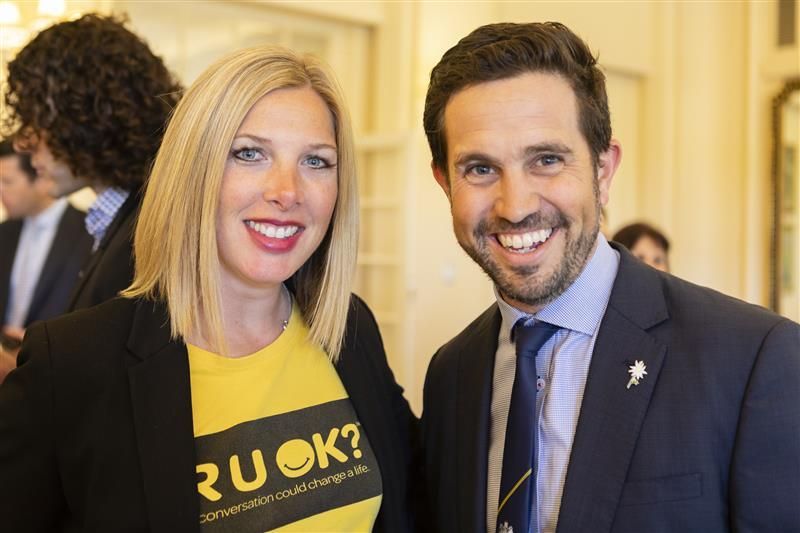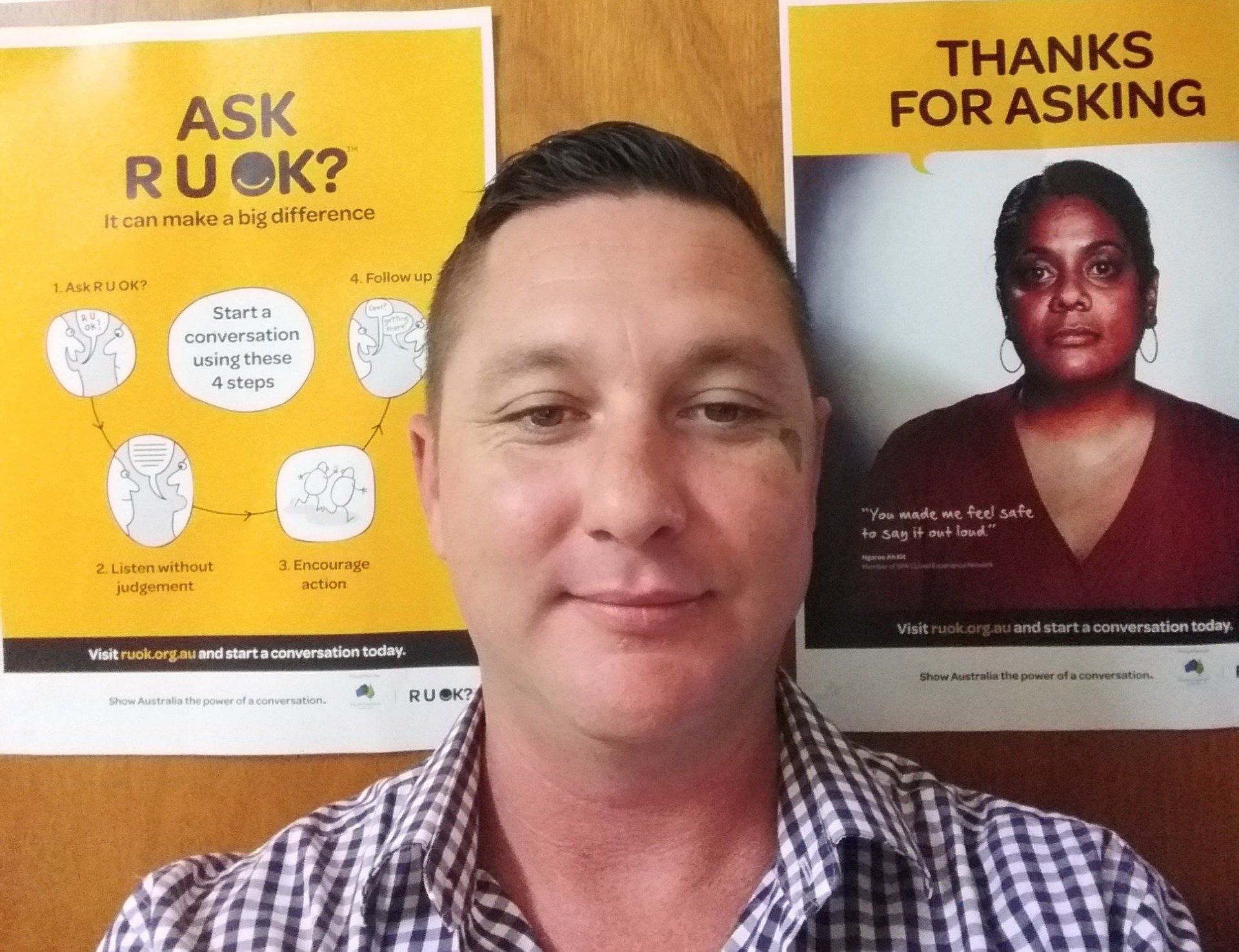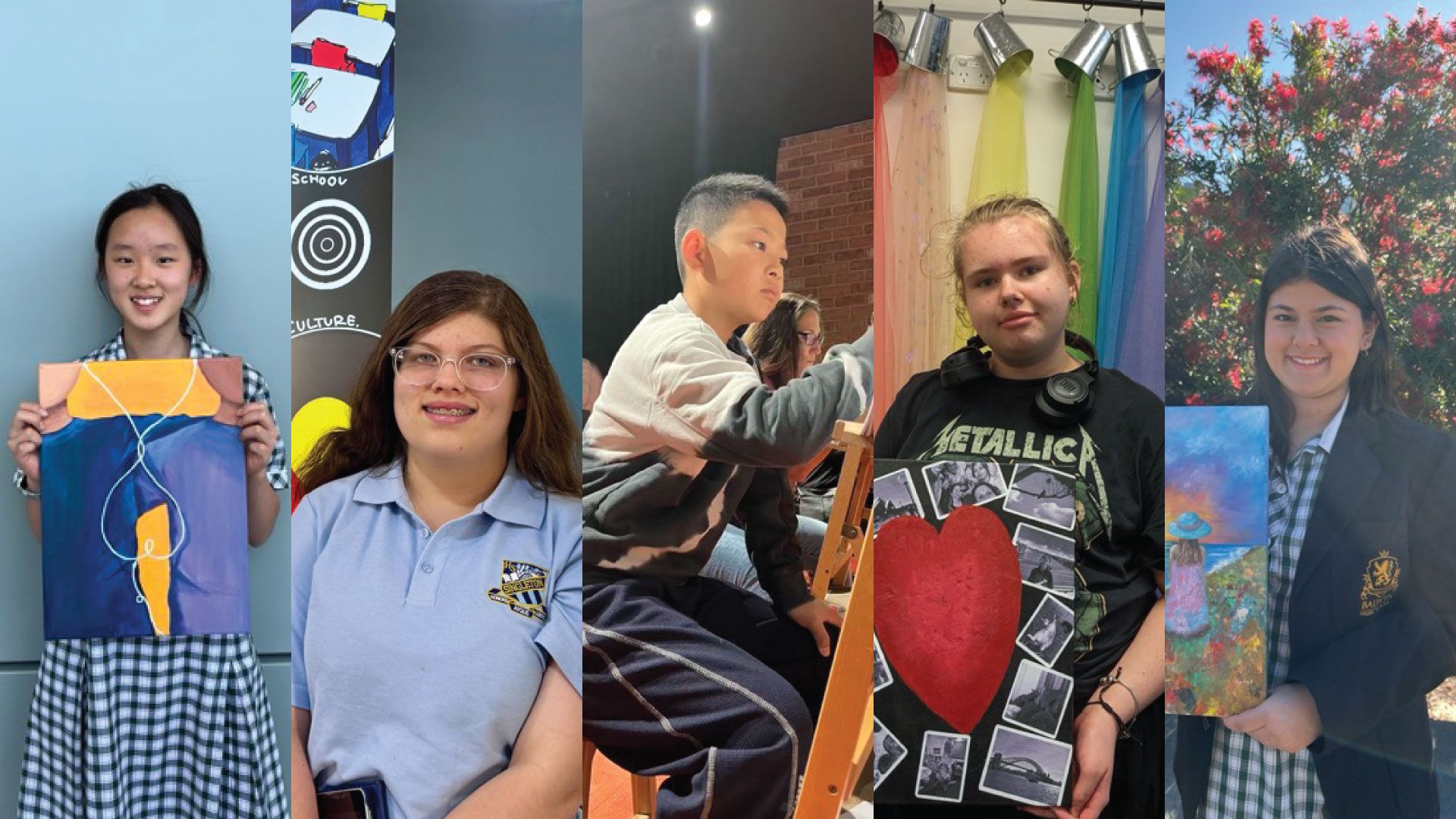Supporter Chad White shares the importance of the R U OK? message in regional and remote Australia
Chad White has been nominated for R U OK?’s Barbara Hocking Memorial Awards
for his outstanding efforts sharing the R U OK? message and encouraging those in his community to ask the question and support one another through life’s ups and downs.
We asked Chad a few questions on the importance of the R U OK? message in rural and remote Australia. Here's what he had to say:
Why do you think people in rural and remote communities across Australia might find it difficult to open up when they’re going through a rough time?
In rural and remote communities across Australia pride and the stigma associated with mental health issues are often a deterrent for those who are struggling to reach out for support. In small communities’ people are also afraid to open up and share what is going on as they are worried about their struggles being shared. Starting R U OK? conversations and being vulnerable ourselves can help overcome these barriers.
Lack of services and information available to rural and remote communities’ also makes opening up quite difficult. A lot of people don’t know how to start the conversation or where to seek help.
Are you struggling to find appropriate local services? Lifeline’s service finder can help you locate free and low-cost local services
How do you start the conversation with a neighbour or mate that you’re worried may be going through a hard time?
We should all be conscious of those around us. A great way to start the conversation could be a simple hello and an invitation for a cuppa. If they don’t feel like talking at that present time, let them know you’re there for them if they change their mind and check-in soon. A good way to show you care is to explain to them why your worried and what you’ve noticed. Acknowledge and listen to what they are saying to you – your body language and good eye contact will show that you’re invested in them, giving them the confidence to open up to you.
What are some things you’d advise not to do or say when asking a mate “Are you OK?”
- When asking someone if they’re OK and having the
conversation it’s important to do so in a private setting
- When asking it’s important to be respectful. Avoid
asking triggering questions such as, “are you intoxicated?” as this can come
across as judgemental. We want to make sure they feel safe and comfortable with
us throughout the conversation
- Never tell someone to “get over it”
- Don’t be distracted and give your full attention when
someone is confiding in you
9 things you should and shouldn't say when supporting someone you're worried about.
Peer-to-peer support is at the heart of R U OK?’s rural initiatives, why is it important we ask R U OK? of those in our regional and remote communities?
It’s extremely important that we show our support in these communities. A lot of the time people are either isolated due to their commitments of working the land, or they may not even have access to transport. When your nearest neighbour could be more than 30km’s away, peer-to-peer support becomes increasingly important.
The reason why the R U OK? message is so important is to let people know support is out there. Whether it be a phone call or a visit, it simply comes down to mateship and that’s what us Aussies are all about.
You organized a very successful R U OK?Day event last year, what advice would you have for others who are organising an R U OK? event?
Don’t ever be afraid to ask for support when organising your event. If you sit down and plan out your event, and what you would like to do for the community, the organisations that you approach are usually more than eager to jump on board and support you and the communities’ needs.
I was extremely impressed and grateful with the Weddin Shire community in supporting the suicide prevention project and other members of the public. Approaching service providers and community organisations for assistance was quite easy, as they were all open to supporting the message.
How do you think a community benefits from implementing the R U OK? message?
There are so many ways that a community benefits from implementing the R U OK? Message. By asking “Are you OK?” you are able to build stronger, more caring relationships throughout the community.
For more information on what you can do in your community head to https://www.ruok.org.au/get-involved
Were you or someone you know an awesome advocate for R U OK? in 2018? Enter the
Barbara Hocking Memorial Awards
now!






















